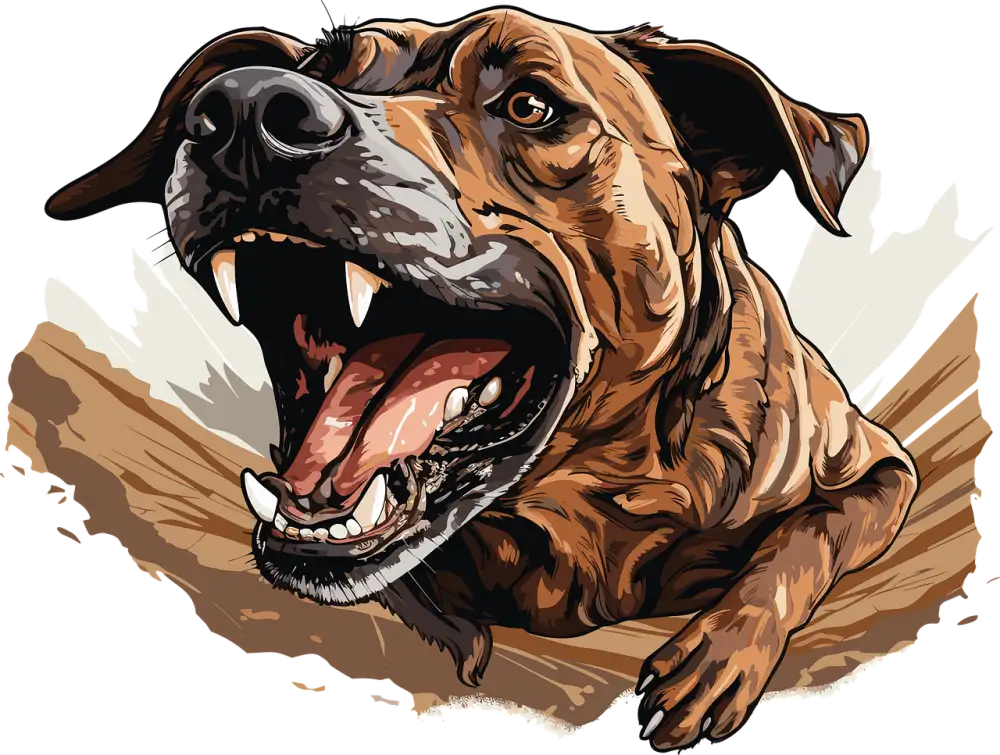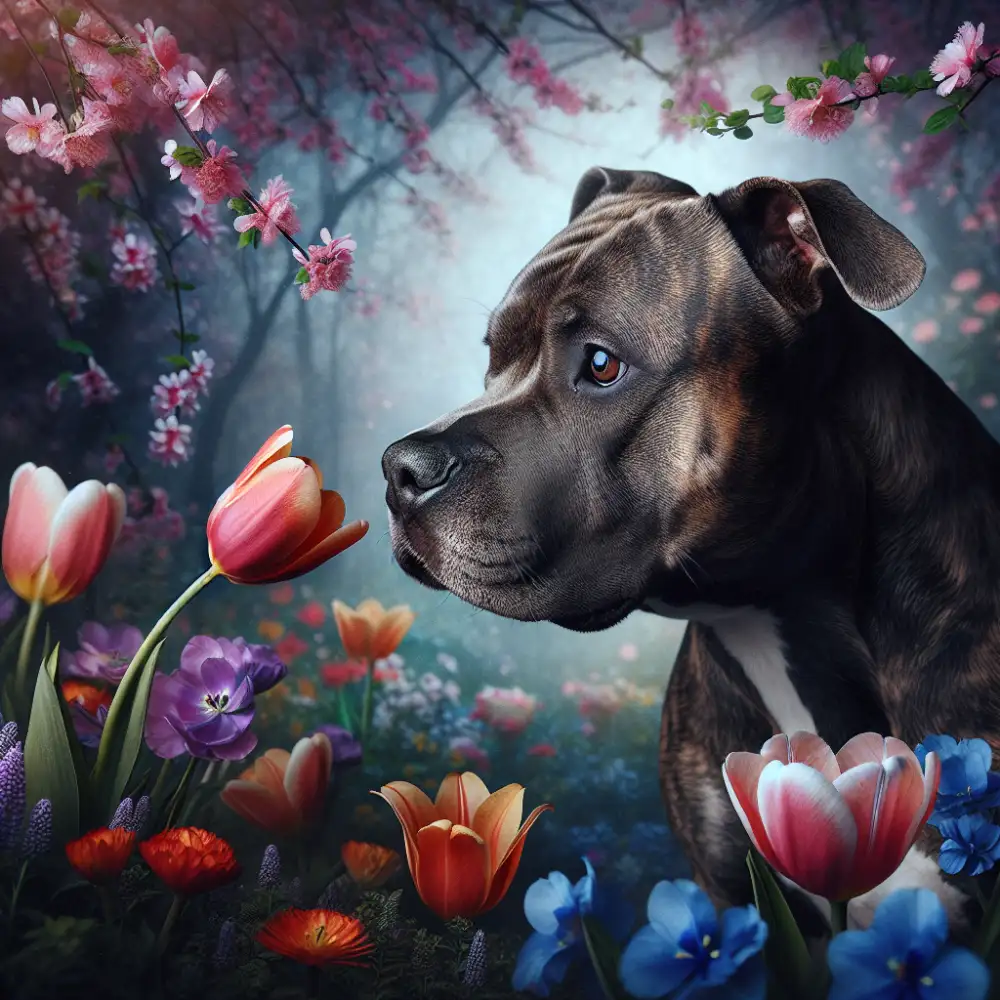Pitbull Blossom: Blooming Beyond the Breed or Beat

Diet and Nutrition
Make half your plate fruits and vegetables, and make half your grains whole grains. Choose lean protein sources, such as seafood, lean meat and poultry, beans, peas, lentils, nuts, and seeds. Use healthy oils, like olive oil. Limit saturated and trans fats, added sugars, and sodium.
Staying hydrated is also essential for good health. Drink plenty of water throughout the day. Limit sugary drinks, such as soda and juice. A healthy diet can help you maintain a healthy weight, reduce your risk of chronic diseases, and improve your overall health.
Exercise and Play
Exercise and play are essential for a dog's physical and mental well-being. Regular physical activity helps dogs maintain a healthy weight, build muscle, and improve cardiovascular health. Aim for at least 30 minutes of exercise per day, but the exact amount will vary depending on the dog's breed, age, and energy level. Walking, running, playing fetch, and swimming are great ways to provide your dog with exercise. Play is equally important for dogs, as it provides mental stimulation and helps them learn social skills. Interactive games, such as tug-of-war and hide-and-seek, can help strengthen the bond between you and your furry friend. Remember to provide your dog with a variety of toys to keep them entertained and engaged.
Training and Socialization
Training and socialization are super important for all dogs, but especially for Cane Corsos because of their size and strength. Start early with both! Obedience training helps your Corso learn basic commands and how to behave around people and other animals. Plus, it strengthens your bond.
Socialization means introducing your Corso to a variety of sights, sounds, people, and of course, other dogs, which helps them grow into a well-adjusted dog. This breed can be prone to dog aggression, so early and ongoing socialization is key. Positive reinforcement techniques, like treats and praise, work best. Harsh methods can backfire and create behavioral issues.
Grooming and Hygiene
Grooming and hygiene are as much about self-care as they are about social etiquette. A good hygiene routine not only boosts your confidence but also protects you from the spread of germs and infections. Start with the basics: a daily shower using soap and water, followed by applying deodorant. Brush your teeth twice a day and floss regularly to maintain good oral hygiene. Keep your nails trimmed and clean. Depending on your personal preference, shave or trim your facial hair regularly. Remember, a little effort in maintaining personal hygiene goes a long way in enhancing your overall well-being and social image.
Living Environment
A living environment encompasses all living and non-living things in a particular area and their interactions. It includes factors like air, water, soil, sunlight, plants, animals, and microorganisms. These elements create a complex web of relationships that sustain life. For instance, plants use sunlight, water, and carbon dioxide to produce oxygen, which animals need to breathe. Animals, in turn, exhale carbon dioxide, which plants utilize. This delicate balance is crucial for the health and survival of all organisms within the ecosystem. Human activities, such as pollution and deforestation, can significantly impact living environments, disrupting these natural processes and threatening biodiversity.

Health Concerns
While generally considered safe, excessive consumption of nutmeg can lead to some health concerns. Nutmeg contains myristicin, a psychoactive compound that can cause unpleasant side effects in large doses. These side effects can include nausea, vomiting, dizziness, hallucinations, and rapid heartbeat. It's important to note that these effects typically occur with the consumption of several teaspoons of nutmeg, which is far beyond its typical culinary use. Pregnant women should avoid consuming large amounts of nutmeg, as it has been linked to miscarriage. If you experience any adverse effects after consuming nutmeg, seek medical attention immediately.
Responsible Ownership
Responsible ownership goes beyond just providing food, water, and shelter. It's about understanding your pet's needs, both physical and emotional, and making a lifelong commitment to their well-being. This includes regular veterinary checkups, vaccinations, a balanced diet, exercise, and mental stimulation. Responsible owners also consider the impact their pet has on others, ensuring they are well-behaved and don't pose a threat or nuisance. Ultimately, responsible ownership is about making choices that prioritize your pet's happiness and quality of life, even when it requires time, effort, and financial commitment.
| Feature | Pitbull (Musician) |
|---|---|
| Type | Musician |
| Genre | Hip hop, Latin pop |
| Active Years | 1999-present |
Pit Bull Advocacy
Pit Bull advocacy aims to change public perception and challenge breed-specific legislation targeting these dogs. Advocates emphasize that responsible ownership, not breed, determines a dog's behavior. They point to studies showing Pit Bull-type dogs are not inherently more aggressive than other breeds. Education is a key component, focusing on dog bite prevention, positive reinforcement training, and dispelling myths surrounding the breed. Advocacy groups often work to rescue, rehabilitate, and rehome Pit Bulls, showcasing their loving and loyal nature. Through community outreach and engagement with lawmakers, they strive for fair treatment and responsible guardianship of all dogs, regardless of breed.

Published: 19. 06. 2024
Category: Food



